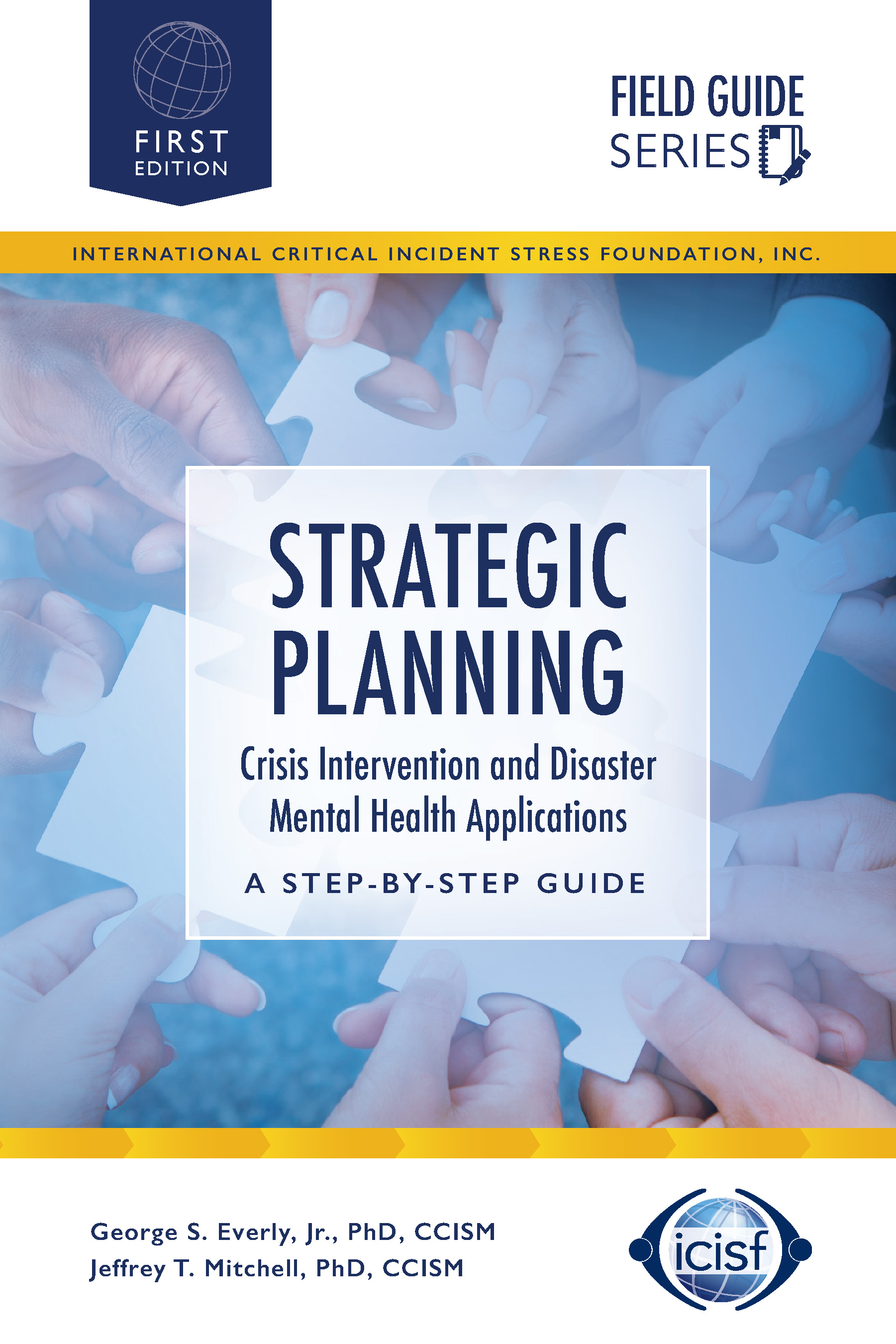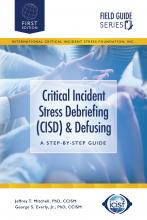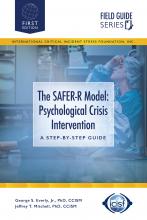Strategic Planning
Strategic Planning
By: George S. Everly, Jr., PhD, ABPP, CCISM, Jeffrey T. Mitchell, PhD, CCISM
Strategic Planning – Crisis Intervention and Disaster Mental Health Applications serves as a practical field guide for developing a strategic plan for organizing various tactical psychological and disaster mental health interventions in the most effective and efficient manner.
Title information
There are three essential elements in planning: objectives, strategies, and tactics. The strategy is often confused with the objective and the tactic, so this field guide begins by clarifying all three terms and helping you think of strategic planning as the total of all planning processes in support of the objective or goal. Crisis intervention and disaster mental/ behavioral health have been plagued by the vigorous pursuit of tactics, while often ignoring the importance of having a strategic formulation, or framework, within which the tactics may reside. Indeed, the perfectly performed tactical intervention implemented at the wrong time can be as complete a failure as the tactical intervention performed poorly. Thus, while tactical proficiency (how to intervene) is essential, so is the strategic understanding of when and where to implement the chosen interventions to maximize outcome and best achieve the objective.
George S. Everly, Jr., PhD, ABPP, CCISM
George S. Everly, Jr., PhD, CCISM is an award-winning author and researcher. In 2016, he was ranked #1 published author in the world by PubMed PubReMiner in the field of crisis intervention. He holds appointments as Professor in the Department of International Health (affiliated) at the Johns Hopkins Bloomberg School of Public Health, Associate Professor (part time) in Psychiatry at the Johns Hopkins School of Medicine, and Professor of Psychology at Loyola University in Maryland (core faculty). He is considered one of the founding fathers of the field of disaster mental health. He was a co-founder of the Dept of Psychiatry at Union Memorial Hospital and served on the management committee 12 years. In addition, he has served on the adjunct faculty of the Federal Emergency Management Agency, the FBI’s National Academy at Quantico, Virginia, and ATF’s Peer Support Team. He is an advisor to the Hospital Authority of Hong Kong. Dr. Everly is co-founder of, and serves as a non-governmental representative to the United Nations for, the International Critical Incident Stress Foundation, a non-profit United Nations-affiliated public health and safety organization. He was Senior Advisor on Research in the Office of His Highness the Amir of Kuwait. Prior to these appointments, Dr. Everly was a Harvard Scholar, visiting in psychology, Harvard University; a Visiting Lecturer in Medicine, Harvard Medical School; and Chief Psychologist and Director of Behavioral Medicine for the Johns Hopkins Homewood Hospital Center.
Jeffrey T. Mitchell, PhD, CCISM
Jeffrey T. Mitchell, PhD, CCISM is Clinical Professor of Emergency Health Services at the University of Maryland in Baltimore County, Maryland. He is a member of the Graduate Faculty of the University of Maryland. He is a co-founder and President Emeritus of the International Critical Incident Stress Foundation. He earned his Ph.D. in Human Development from the University of Maryland. He served for six years as a regional coordinator of Emergency Medical Services for the Maryland Institute for Emergency Medical Services Systems. He was responsible for the development of the Emergency Medical Services System in five southern Maryland counties. After serving as volunteer paramedic / firefighter for ten years, he developed a comprehensive, integrated, systematic, and multi-component crisis intervention program called “Critical Incident Stress Management.” Today, that program reduces traumatic stress in many countries.
He has authored more than 275 articles and 19 books in the stress and crisis intervention fields. He serves as an adjunct faculty member of the Emergency Management Institute of the Federal Emergency Management Agency. He is a faculty member of Florida Institute of Technology and teaches a course on the psychology of disasters. Dr. Mitchell is a faculty member in the school of education, Johns Hopkins University. He is a reviewer for the Journal of the American Medical Association (JAMA), Disaster Medicine, the Journal of Emergency Medical Services (JEMS) and the International Journal of Emergency Mental Health. He received the Austrian Red Cross Bronze Medal for his work in Crisis Intervention in the aftermath of the Kaprum, Austria train tunnel fire. The Association of Traumatic Stress Specialists approved Dr. Mitchell as a Certified Trauma Specialist.
The United Nations appointed him to the United Nations Department of Safety and Security Working Group on Stress. He has consulted on stress, crisis, and trauma topics in 28 nations and in every one of the 50 United States.



